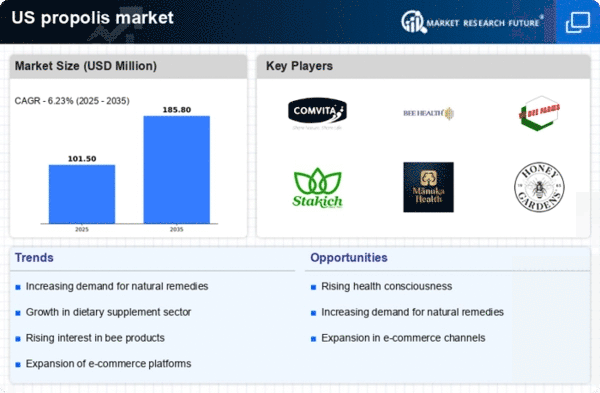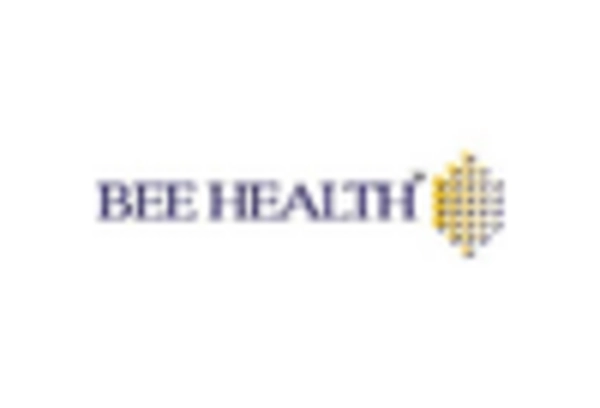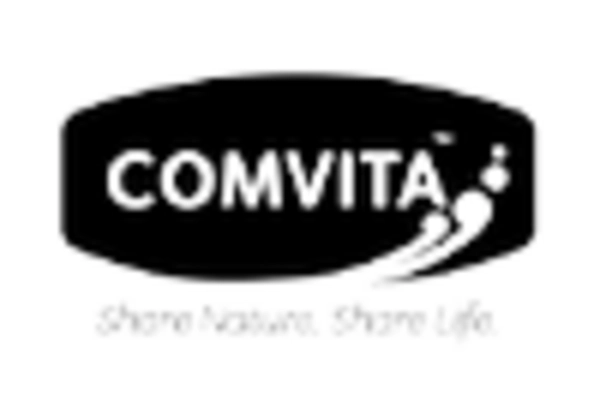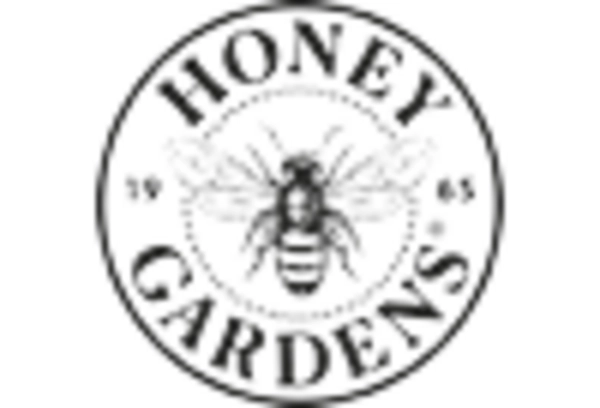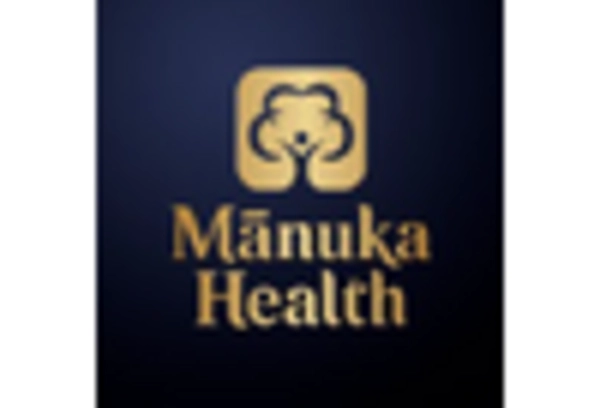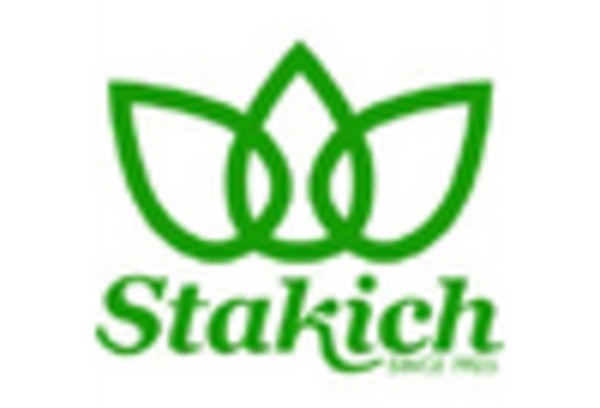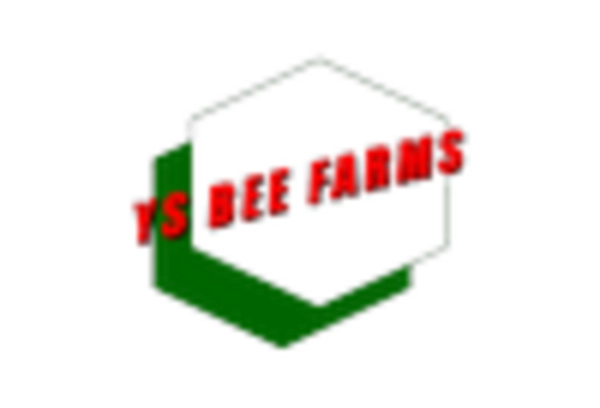Expansion of E-commerce Platforms
The rise of e-commerce platforms has significantly impacted the propolis market, facilitating easier access to a variety of propolis products. Online retail channels have become increasingly popular, allowing consumers to purchase propolis supplements, cosmetics, and other related items from the comfort of their homes. In 2025, e-commerce sales in the health and wellness sector are expected to account for over 30% of total sales, indicating a shift in consumer purchasing behavior. This trend not only enhances market reach but also encourages competition among suppliers, ultimately benefiting consumers with a wider selection of high-quality propolis products.
Innovations in Product Development
Innovations in product development are playing a crucial role in shaping the propolis market. Manufacturers are increasingly exploring new formulations and delivery methods to enhance the efficacy and appeal of propolis products. This includes the development of propolis-infused cosmetics, health supplements, and functional foods that cater to diverse consumer preferences. The market is witnessing a surge in research and development activities, with investments aimed at improving product quality and efficacy. As a result, the propolis market is likely to see a variety of innovative offerings that not only meet consumer demands but also expand the overall market potential.
Rising Popularity of Functional Foods
The propolis market is experiencing a notable shift towards functional foods, which are designed to provide health benefits beyond basic nutrition. Propolis is increasingly being incorporated into various food products, such as beverages, snacks, and dietary supplements, appealing to health-conscious consumers. The functional food market in the US is projected to grow at a CAGR of 8% through 2025, indicating a robust demand for products that promote wellness. This trend suggests that as consumers seek out foods that offer additional health benefits, the inclusion of propolis in these products could significantly enhance its market presence and drive sales within the propolis market.
Growing Interest in Beekeeping and Apiculture
The propolis market is likely to benefit from the growing interest in beekeeping and apiculture among hobbyists and professionals alike. As more individuals engage in beekeeping, the awareness of bee products, including propolis, is increasing. This trend is supported by educational programs and community initiatives aimed at promoting sustainable beekeeping practices. The US beekeeping industry has seen a resurgence, with an estimated 2.7 million honey-producing colonies reported in 2025. This growth in beekeeping not only supports the supply chain for propolis but also fosters a deeper appreciation for its uses, thereby enhancing the overall market for propolis products.
Increasing Consumer Awareness of Health Benefits
The propolis market is experiencing growth due to heightened consumer awareness regarding the health benefits associated with propolis. As individuals increasingly seek natural remedies, the demand for propolis products has surged. Research indicates that propolis possesses antimicrobial, anti-inflammatory, and antioxidant properties, which appeal to health-conscious consumers. In the US, the market for natural health products is projected to reach approximately $200 billion by 2025, with propolis being a notable contributor. This trend suggests that as consumers become more informed about the advantages of propolis, the market will likely expand further, driving innovation and product development within the propolis market.


